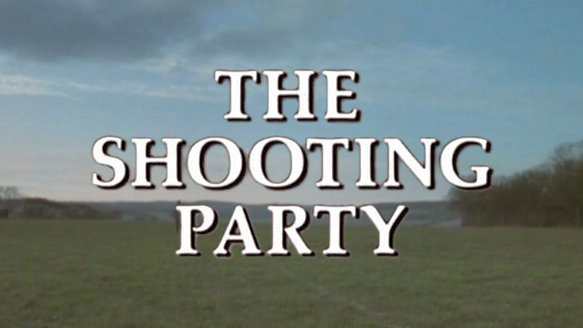 Colgate’s The Shooting Party is a snapshot of English gentry circa October 1913 when Sir Randolph and Minnie Nettleby, the lord and lady of the manor, host one of their traditional fall shooting parties. A halt accompanies it on the hunt or midday break for luncheon....
Colgate’s The Shooting Party is a snapshot of English gentry circa October 1913 when Sir Randolph and Minnie Nettleby, the lord and lady of the manor, host one of their traditional fall shooting parties. A halt accompanies it on the hunt or midday break for luncheon....
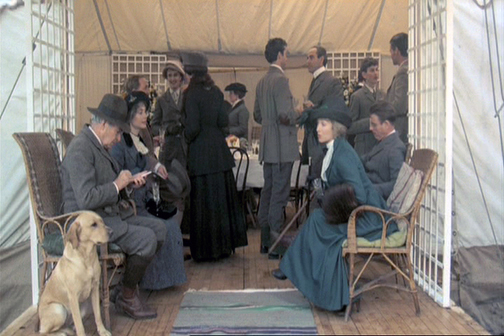 Bridges’s hunt picnic is faithful to Isabel Colegate’s gently melancholy novel of English gentry circa 1913, The Shooting Party. The title The Shooting Party is intended to suggest the larger “shooting party” of the looming world war. Though they know it, Sir...
Included in Varley’s “Picnic on the Nearside is a romantic picnic on the Moon. Fox Carnival Joule and Halo are pals. But their relationship is altered when Halo changes into a woman with full breasts, curves, “the works,” etc. To avoid the sexual...
Bridges’s hunt picnic is faithful to Isabel Colegate’s gently melancholy novel of English gentry circa 1913, The Shooting Party. The title The Shooting Party is intended to suggest the larger “shooting party” of the looming world war. Though they know it, Sir...
Included in Varley’s “Picnic on the Nearside is a romantic picnic on the Moon. Fox Carnival Joule and Halo are pals. But their relationship is altered when Halo changes into a woman with full breasts, curves, “the works,” etc. To avoid the sexual...
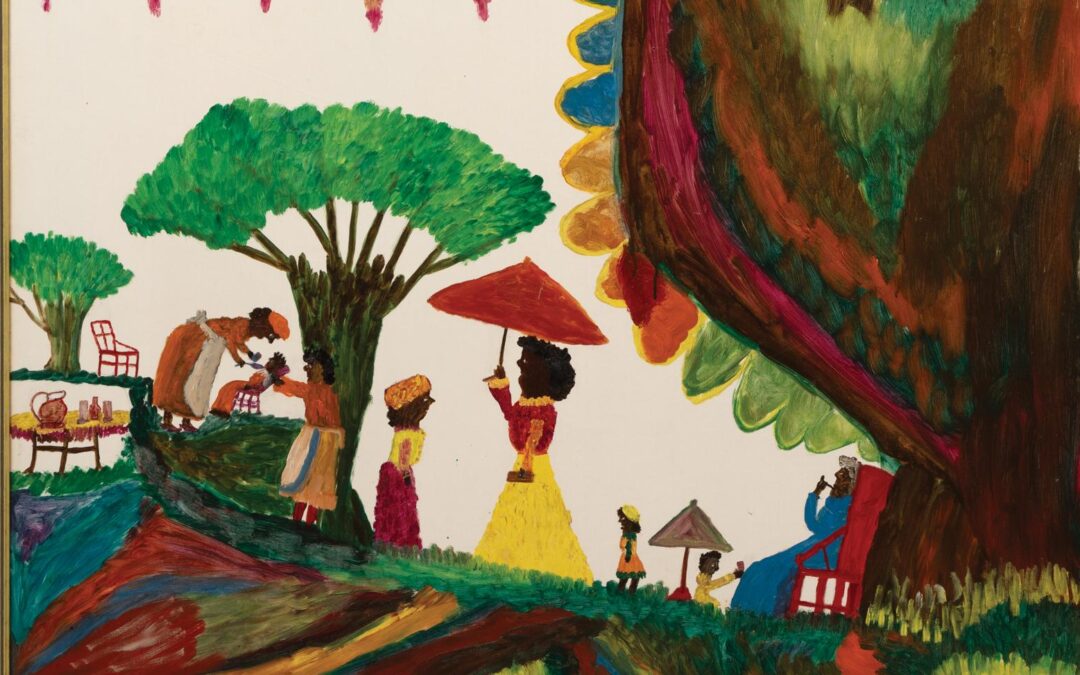 Hunter is a self-taught artist, whose subjects are mainly depictions of the environs of Melrose Plantation in Natchitoches Parish, Louisiana. Picnic belies the fact that Hunter’s life was difficult. She was poor, illiterate, yet embued with a strong soul yearning to...
Hunter is a self-taught artist, whose subjects are mainly depictions of the environs of Melrose Plantation in Natchitoches Parish, Louisiana. Picnic belies the fact that Hunter’s life was difficult. She was poor, illiterate, yet embued with a strong soul yearning to...
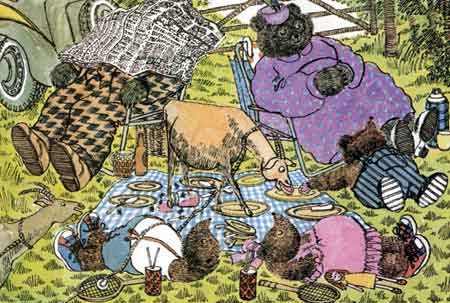 Picnic is the euphemism for a daylong eating orgy in Gordon’s Wilberforce Goes on a Picnic (1982). It’s the story of obese bears and a goat, who collectively devour mounds of hamburgers on rolls, sandwiches, a jar of catsup, a bowl heaped with mashed...
Picnic is the euphemism for a daylong eating orgy in Gordon’s Wilberforce Goes on a Picnic (1982). It’s the story of obese bears and a goat, who collectively devour mounds of hamburgers on rolls, sandwiches, a jar of catsup, a bowl heaped with mashed...
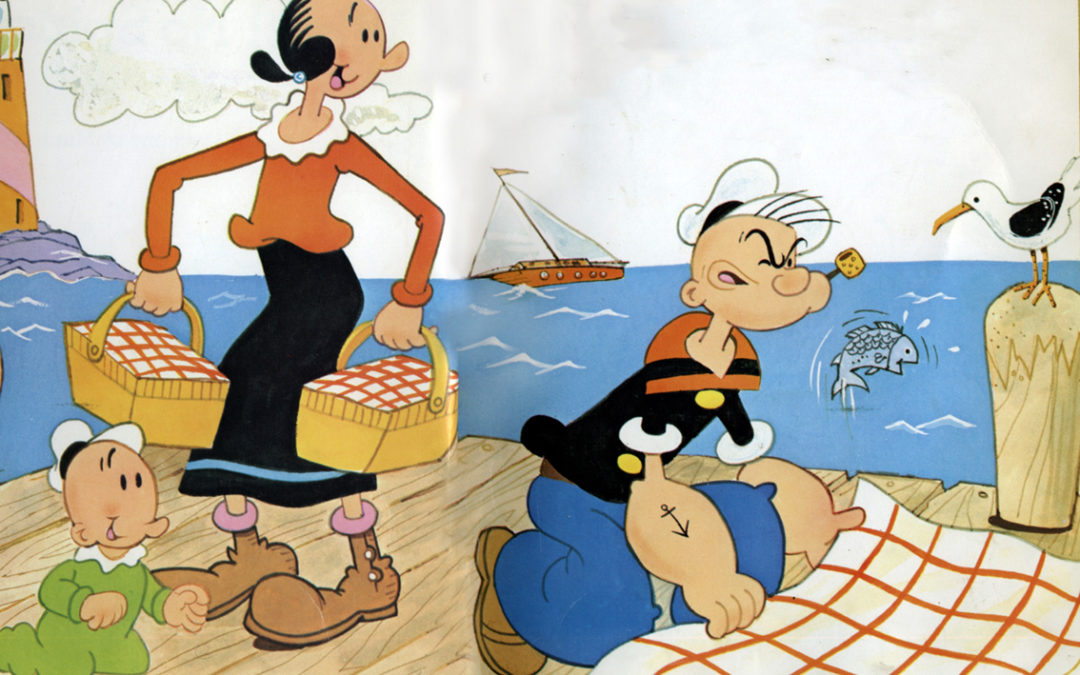 Several Popeye stories include picnics –all with spinach. There is one picnic in which Olive Oyl tries to shift Popeye from his tried-and-true diet. It’s Edward Knapp’s What! No Spinach, and at this picnic, Olive offers Popeye baskets packed with salami, fresh rye...
Several Popeye stories include picnics –all with spinach. There is one picnic in which Olive Oyl tries to shift Popeye from his tried-and-true diet. It’s Edward Knapp’s What! No Spinach, and at this picnic, Olive offers Popeye baskets packed with salami, fresh rye...
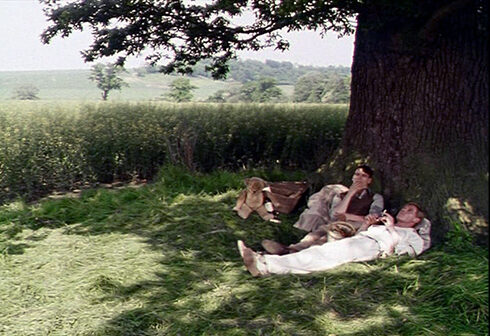 Sturridge’s strawberry picnic in Brideshead Revisited is mainly faithful to Waugh’s novel. Sebastian Flyte and Charles Ryder’s idyllic picnic and intensely close friendship is a moment of respite in their otherwise often messy lives. Particularly Sebastian’s....
Sturridge’s strawberry picnic in Brideshead Revisited is mainly faithful to Waugh’s novel. Sebastian Flyte and Charles Ryder’s idyllic picnic and intensely close friendship is a moment of respite in their otherwise often messy lives. Particularly Sebastian’s....
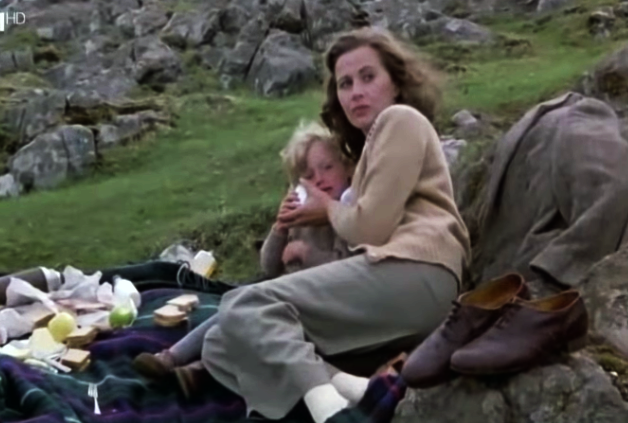 Marquand’s The Eye of the Needle is close enough to Follett’s spy thriller, which does not have a picnic episode. Henry Faber, aka Henry Baker, aka The Needle, waits to connect with a Nazi U-boat to take him back to Germany to meet with Hitler. He’s...
Marquand’s The Eye of the Needle is close enough to Follett’s spy thriller, which does not have a picnic episode. Henry Faber, aka Henry Baker, aka The Needle, waits to connect with a Nazi U-boat to take him back to Germany to meet with Hitler. He’s...
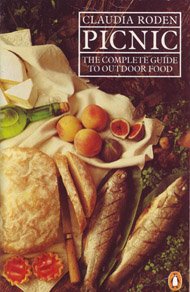 Roden’s Picnic appeared in England as Picnic (1981), then revised and retitled Everything Tastes Better Outdoors (1984). Her impetus is the belief that “There is something about fresh air and the liberating effect of nature which sharpens the appetite and...
Roden’s Picnic appeared in England as Picnic (1981), then revised and retitled Everything Tastes Better Outdoors (1984). Her impetus is the belief that “There is something about fresh air and the liberating effect of nature which sharpens the appetite and...
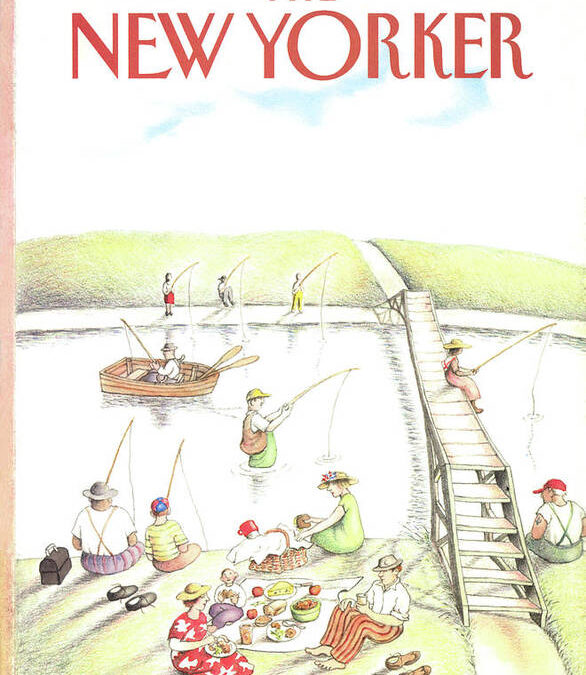 Burgess’s Picnic by a River is The New Yorker’s August cover. By the side of a placid river, a mother, father, and son sit on a plate of cheese, a bowl of salad, a loaf of bread, fruits, and lemonade, Mother has a plate, and the son has a sandwich. Shoes off, they...
Burgess’s Picnic by a River is The New Yorker’s August cover. By the side of a placid river, a mother, father, and son sit on a plate of cheese, a bowl of salad, a loaf of bread, fruits, and lemonade, Mother has a plate, and the son has a sandwich. Shoes off, they...
 Transforming the popular children’s song “Teddy Bears’ Picnic” into a death picnic is Trevor’s metaphor for portraying the 1980s generation as infantile and short on morality. Six months into their marriage, Edwin, a twenty-nine-year-old...
Symons’s catchy title One Continuous Picnic: A History of Eating in Australia is an exaggeration. Picnic is used to raise expectations of social conviviality and high spirits in this historical survey of Australia and its cookery. See Michael Symons. One Continuous...
Transforming the popular children’s song “Teddy Bears’ Picnic” into a death picnic is Trevor’s metaphor for portraying the 1980s generation as infantile and short on morality. Six months into their marriage, Edwin, a twenty-nine-year-old...
Symons’s catchy title One Continuous Picnic: A History of Eating in Australia is an exaggeration. Picnic is used to raise expectations of social conviviality and high spirits in this historical survey of Australia and its cookery. See Michael Symons. One Continuous...
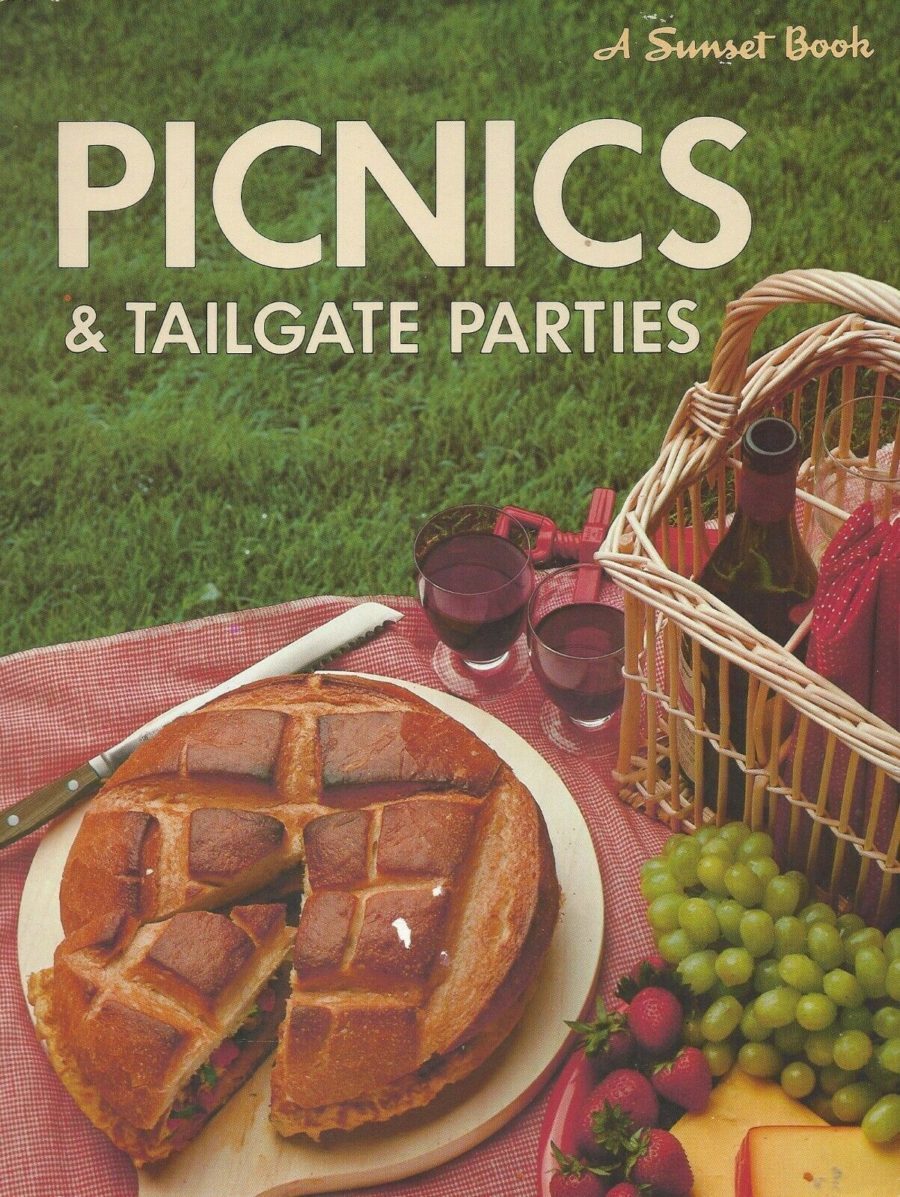 Good advice for packing a picnic: “Pack the unbreakable items first, the French bread last of all.” See Cornelia Fogle. ed. Sunset Books, Picnics and Tailgate Parties. Menlo Park, California: Lane Publishing, 1982
Good advice for packing a picnic: “Pack the unbreakable items first, the French bread last of all.” See Cornelia Fogle. ed. Sunset Books, Picnics and Tailgate Parties. Menlo Park, California: Lane Publishing, 1982
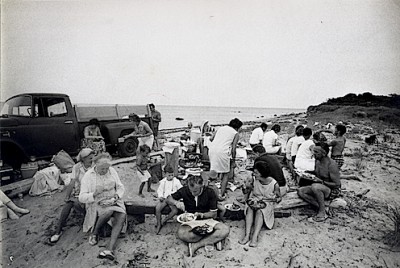 Claiborne’s A Feast Made for Laughter (1982) relates the anecdote of the “Chefs’ Picnic” (1965) staged on Gardiners Island, East Hampton, NY, for twenty-five and catered by five four-star chefs. According to Claiborne, he was the star. His...
Claiborne’s A Feast Made for Laughter (1982) relates the anecdote of the “Chefs’ Picnic” (1965) staged on Gardiners Island, East Hampton, NY, for twenty-five and catered by five four-star chefs. According to Claiborne, he was the star. His...
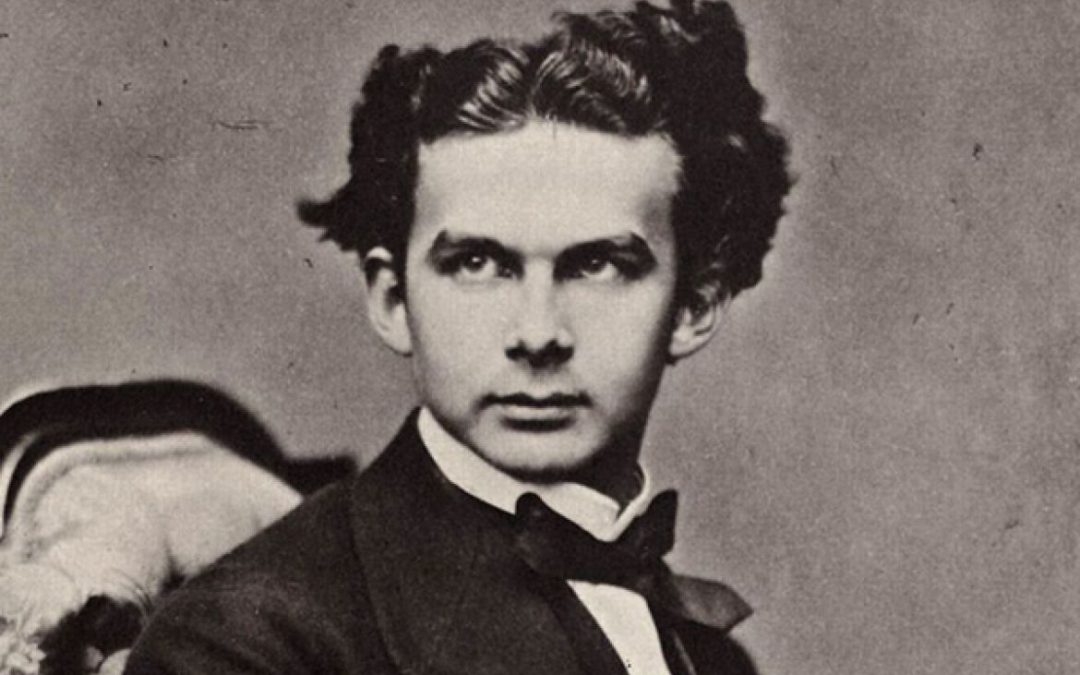 Peters’ verse narrative The Picnic in the Snow: Ludwig of Bavaria (1982, rev. 1986) is a bio-drama about Ludwig II, King of Bavaria, an unhappy gay man, creative and destructive, who “cultivated the esthetic experience and the dream world.” ...
Peters’ verse narrative The Picnic in the Snow: Ludwig of Bavaria (1982, rev. 1986) is a bio-drama about Ludwig II, King of Bavaria, an unhappy gay man, creative and destructive, who “cultivated the esthetic experience and the dream world.” ...
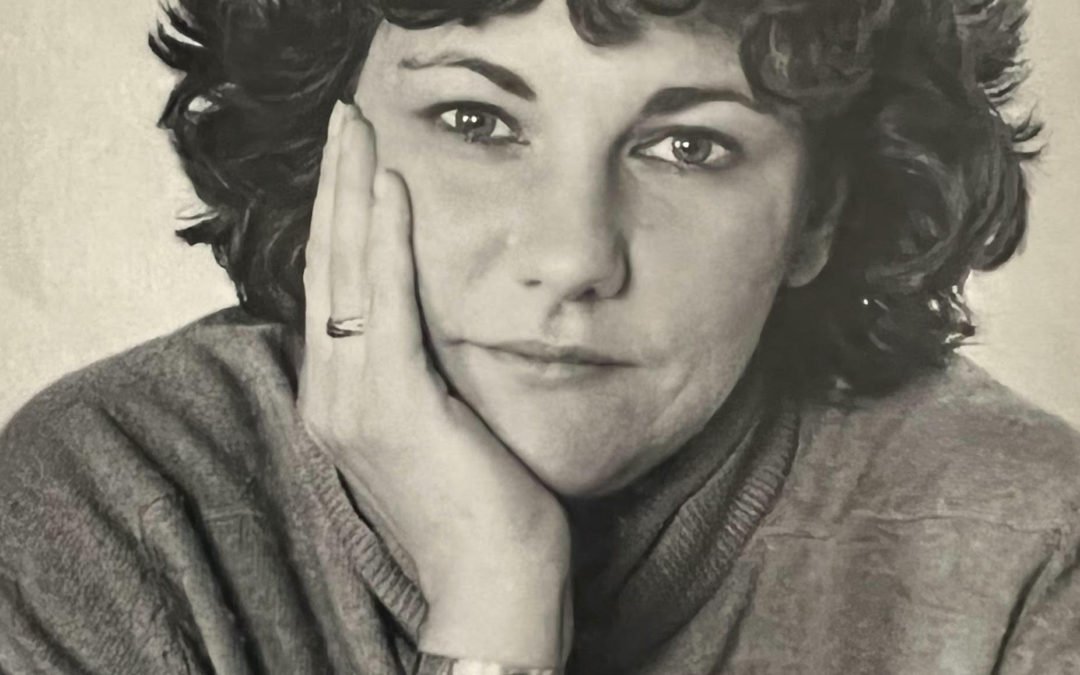 Colwin’s is a New York-based novel about Polly [Dora] Solo-Miller Demarest, married to Henry Demarest, an affluent, Jewish East Manhattan husband she loves, and Lincoln Bennett, an artist who lives in Lower Manhattan. Polly finds family happiness by leading two lives,...
Colwin’s is a New York-based novel about Polly [Dora] Solo-Miller Demarest, married to Henry Demarest, an affluent, Jewish East Manhattan husband she loves, and Lincoln Bennett, an artist who lives in Lower Manhattan. Polly finds family happiness by leading two lives,...
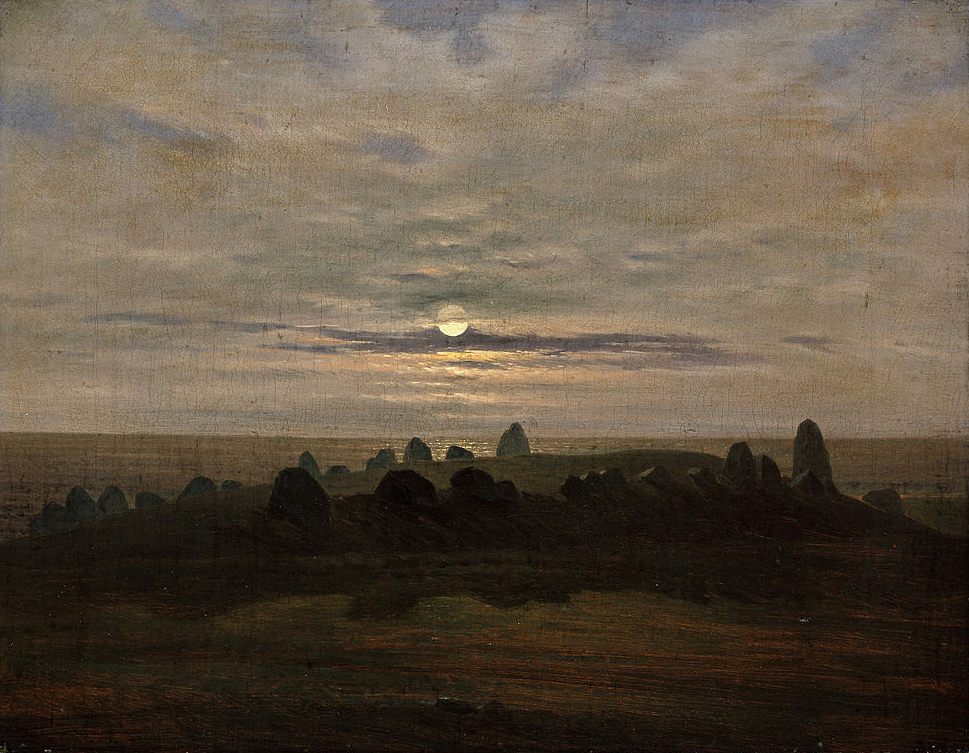 When picnics are portrayed as unhappy, the contrast is purposeful. Charles McCarry’s picnic nightmare intends to provide a metaphor for the life of Paul Christopher, a Cold War CIA spy still struggling to find his mother, Lori, who was abducted by the Nazis in 1939....
When picnics are portrayed as unhappy, the contrast is purposeful. Charles McCarry’s picnic nightmare intends to provide a metaphor for the life of Paul Christopher, a Cold War CIA spy still struggling to find his mother, Lori, who was abducted by the Nazis in 1939....
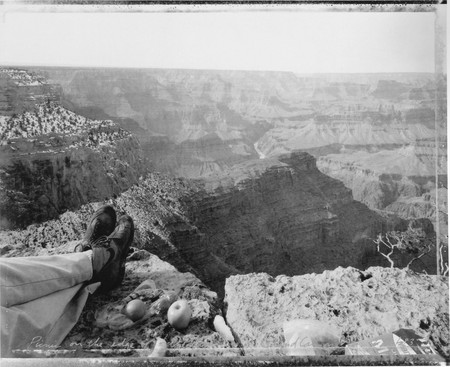 Relaxed and easy. I wish I had created this photograph. Mark Klett’s Picnic on the Edge of the Rim is a Grand Canyon vista that brings the vast landscape into manageable focus. Featured Image: Picnic on the Edge of Rim, Grand Canyon (1983), Gelatin silver print...
Relaxed and easy. I wish I had created this photograph. Mark Klett’s Picnic on the Edge of the Rim is a Grand Canyon vista that brings the vast landscape into manageable focus. Featured Image: Picnic on the Edge of Rim, Grand Canyon (1983), Gelatin silver print...
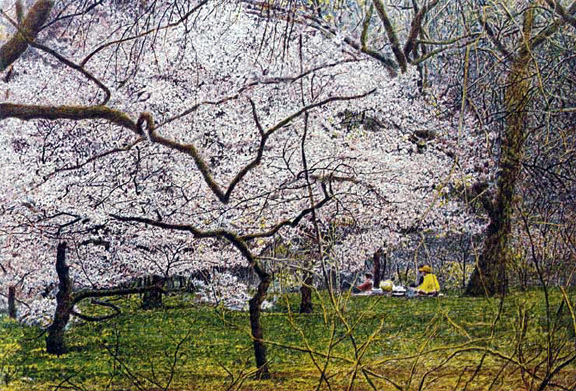 It makes you want to picnic in Central Park. See Harold Altman. Picnic in Central Park (1985). Lithograph
It makes you want to picnic in Central Park. See Harold Altman. Picnic in Central Park (1985). Lithograph
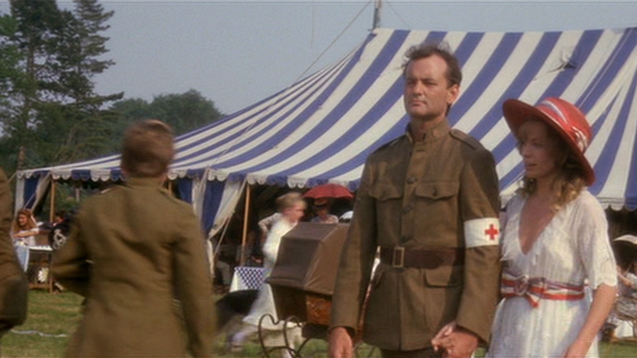 At Byrum’s July Fourth picnic, lovers cuddle, kiss, and roll on the grass. Larry Darrell wants more, but Isabel Bradley wants to wait. At the lover’s picnic in Maugham’s The Razor’s Edge, never touch or kiss or even hold hands As in...
At Byrum’s July Fourth picnic, lovers cuddle, kiss, and roll on the grass. Larry Darrell wants more, but Isabel Bradley wants to wait. At the lover’s picnic in Maugham’s The Razor’s Edge, never touch or kiss or even hold hands As in...



















